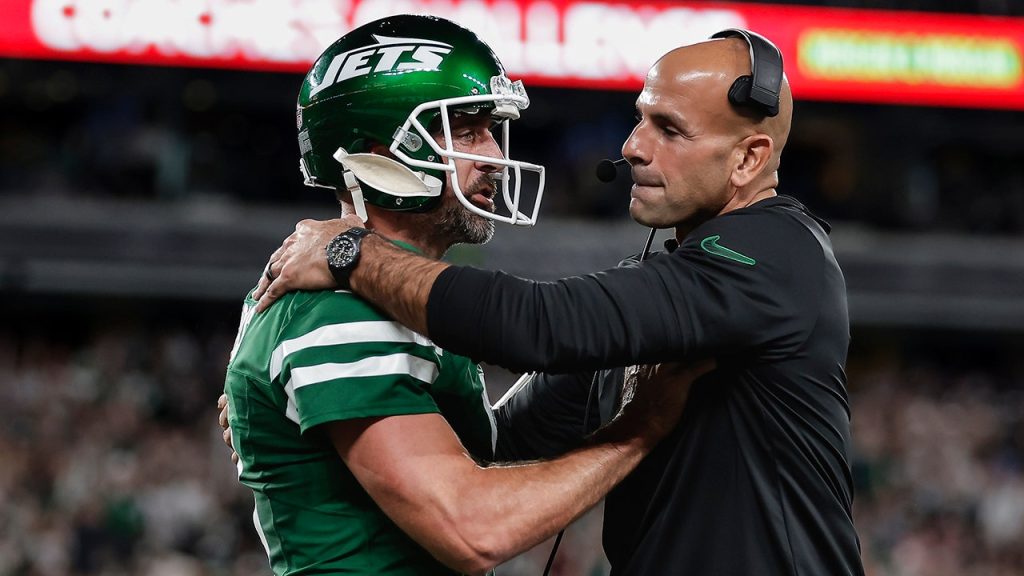The New York Jets fired head coach Robert Saleh after just five games, during which they compiled a 2-3 record. The decision to fire Saleh came after the team’s two consecutive losses, including a defeat to the Minnesota Vikings in London. Former NFL player Solomon Wilcots criticized the firing of Saleh on a recent podcast, attributing the decision to owner Woody Johnson’s desire to make a change for appearances rather than football reasons. Wilcots pointed to the team’s struggling offense, which has scored just 26 points in their last two games and 93 points overall in their first five games this season.
Wilcots highlighted the offensive play-calling under offensive coordinator Nathaniel Hackett and co-offensive coordinator Aaron Rodgers, which heavily favored passing over running the ball. Despite a strong defensive showing by Saleh’s team, the offense has been unable to produce consistent results. The decision to fire Saleh was seen as a move to shake things up and perhaps appease star quarterback Aaron Rodgers, who was expected to elevate the Jets’ offense. However, the offensive struggles continued even after Saleh’s departure, casting doubt on whether the coaching change was necessary.
In the absence of Saleh, the Jets promoted defensive coordinator Jeff Ulbrich to interim head coach. Ulbrich will be tasked with improving the team’s performance and getting their season back on track. Despite their sluggish start, the Jets have an opportunity to turn things around with a win in their next game against the Buffalo Bills on “Monday Night Football.” If they can secure a victory, they will be in a position to lead the AFC East and potentially salvage a successful season after the early adversity they have faced.
The decision to fire Saleh has sparked debate among fans, analysts, and former players about the reasons behind the move and whether it was the right decision for the team. Some believe that the offensive struggles were the main factor in Saleh’s dismissal, while others point to ownership’s desire to make changes for reasons unrelated to on-field performance. Regardless of the rationale behind the decision, the Jets will now look to Ulbrich to provide leadership and guidance to the team as they navigate the rest of the season.
The firing of Saleh marks a significant moment in the Jets’ season and reflects the high expectations that were placed on the team coming into the year. With a talented roster and a star quarterback in Rodgers, the Jets were expected to be contenders in the AFC East. However, their struggles on offense have raised questions about their ability to compete at a high level. Moving forward, the team will need to rally around their interim head coach and work together to overcome the challenges they face in order to achieve success on the field.















